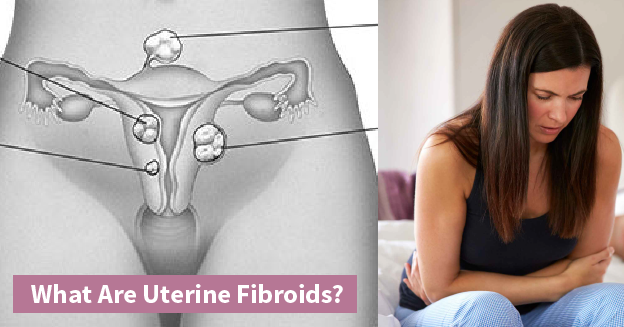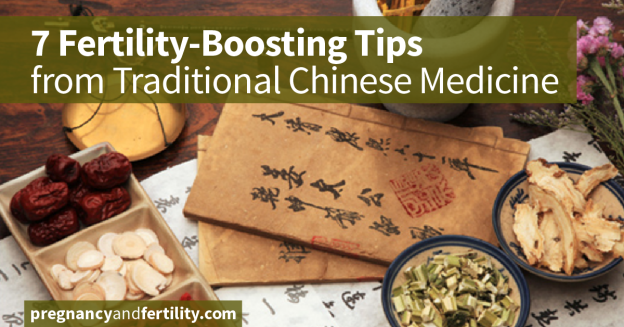Video from Marc Sklar, The Fertility Expert and Amy Pamensky, our nutritionist to talk about fish oils and getting pregnant fast. Continue reading



Video from Marc Sklar, The Fertility Expert and Amy Pamensky, our nutritionist to talk about fish oils and getting pregnant fast. Continue reading

Uterine fibroids are a common health concern among a major population of women.
Uterine fibroids are benign, non cancerous tumours that originate within the uterus.
They are also called fibroid tumors, leiomyomas, or myomas.
They are made of the same muscle tissues as the uterus, though they tend to be hardened.
This is possibly because uterine fibroids contain higher levels of estrogen than the surrounding uterine tissues.
The uterus is the perfect location for fibroids to thrive.
Firstly, the purpose of the uterus is to hold the fetus. This means, it has the perfect environment for a mass of cells to reproduce and cause a hardened growth.
Secondly, there is enough space for multiple fibroids to grow undetected.
Apart from these factors, hormonal fluctuations, the thick endometric walls and a good supply of menstrual blood, all together form a hospitable environment for the fibroids to develop and flourish.
There are various factors that contribute to the formation and subsequent growth of uterine fibroids.
For instance, the genetic construction in some women makes them more susceptible to fibroids than others.
Thankfully, genetic research shows that these constructions can be altered and thereby the condition can be overcome. Again, an unwholesome diet usually causes hormonal imbalances, which, in turn disturb the removal of toxic waste from the body.
Lack of nutrition usually lowers the body’s defenses and therefore makes one vulnerable to fibroids. When the immune system is weak, the body is unable to tackle problems of toxic accumulation and hormonal imbalance.
Prolonged exposure to toxins, through our food, our water and our air, leads to a toxic build up in the body.
This makes the body more vulnerable to fibroids.
Finally, insulin resistance is a stage where the cells in one’s body are less responsive to the insulin hormone thus resulting in abnormal blood sugar. These fluctuations in the blood sugar levels lead to uterine fibroids.
. The Subserous Fibroid-
This is the most common kind of fibroid. It develops on the outer walls of the uterus and tends to grow bigger and more painful during menstruation.
. The Submusocal Fibroid-
This kind of fibroid can be found very deep inside the uterus. Often, the only solution for relief from this type is surgery. It causes excessive bleeding (often leading to hemorrhage) and can cause a lot of pain.
. The Intramural Fibroid-
The intramural fibroid grows exactly on the walls of the uterus. It displays the characteristics and symptoms of both subserous and submusocal fibroids.
. The Pedunculated Fibroid-
These fibroids are attached to the uterine walls by a stalk like growth referred to as the peduncle. They don’t usually display any symptoms, but can be felt during internal examinations.
Some of these are, excessive menstrual flow, excruciating cramps accompanied with fever and nausea, bloating, pain during intercourse and severe abdominal pressure.
Uterine fibroids tend to cause several problems to the sufferers such as urinary problems, pregnancy and fertility related problems and even depression due to hormonal imbalances.
Now that you know all about uterine fibroids, it is important to know that there is a cure.
A wise and healthy way of dealing with this condition is to approach it in a holistic manner. Holistic treatments examine your body as a whole and heals the condition using a multi-dimensional approach in a safe and natural way.
Holistic treatments aim at building a strong immune system, and also enhance your mental and spiritual strength, to equip your body to cure itself of the disease.
Thus, say, by combining a healthy diet with exercise and meditation, you can strengthen your mind and body, eliminate the existing fibroids and permanently prevent further fibroids from developing.
Holistic treatment not only provides a complete relief from the condition but also permanently keeps further fibroids from developing.
This article is based on the book, “Fibroids Miracle” by Amanda Leto.
Amanda is an author, researcher, nutritionist and health consultant who dedicated her life to creating the ultimate Fibroids solution guaranteed to permanently reverse the root of uterine fibroids, naturally enhance your fertility and dramatically improve the overall quality of your life, without the use prescription medication and without any surgical procedures. Learn more by visiting her website:

Want to give your chances of getting pregnant an all-natural boost from the world of Traditional Chinese Medicine? Here’s the scoop on TCM… Continue reading

In both the female and male body, the balance of hormones has to be just right for conception to occur and for pregnancy to proceed. Nutrients that are in excess or that are in depletion can throw off balance and disrupt the pregnancy process. When we can choose whole foods for our diet, we are increasing our chances of obtaining the most nutrients we need.
Whole foods include fruits, fresh vegetables, unrefined grains, beans, nuts, seeds, eggs, and small whole fish. It’s important to make sure you’re choosing healthy whole superfoods that have an abundant supply of each of the following vitamins and minerals. Continue reading
One of the first things most of us women prepare to say goodbye to once we see those two pink lines on our pregnancy tests is caffeine. Many women will stop their caffeine habit cold turkey out of the sheer fear of doing some sort of damage to the new life growing inside of them.

These women will swear off anything that has caffeine in it from coffee, and soda to even chocolate. Then there are some of us who will still drink caffeine but cut back. Instead of drinking five cups of coffee a day, we might cut back to at least one cup of coffee to get us through the day.
Our mothers and grandmothers will probably tell us that they drank the same amount of caffeine pregnant as they did when they were not pregnant and their children turned out fine. However a lot more research has been done since their time and studies are showing that too much caffeine can cause some complications such as preterm labor and/or low birth weight.
Doctors are telling their patients that a moderate amount of caffeine will not harm their babies. Even though caffeine does cross the placenta, anything less than 300 milligrams a day (an 8 ounce cup of strong coffee) will not do any harm. Anything over 300 milligrams puts your baby at risk and studies have also shown that women who drink more than 300 milligrams of caffeine a day during their first trimester have a slightly higher risk of a miscarriage.
Studies have also shown that women who had over 500 milligrams of caffeine a day had babies who had faster heart rates and faster breathing rates. These babies also spent more time awake in their first few days of life rather than peacefully sleeping after their long journey.
There are a number of other reasons why we women might want to cut back on the amount of caffeine we drink during pregnancy. For starters, it has no nutritional value. If there is ever a time for us to be aware of our nutritional needs it is when we are pregnant.
Second, caffeine is a stimulant which will increase your heart rate and can cause insomnia and headaches which can put some stress on your growing little one. Third, caffeine can cause heartburn. If you have been pregnant before you know that heartburn can be a burden to begin with, and caffeine just makes it worse. Lastly it is a diuretic which means it can cause you to lose fluids which can put you at a risk of becoming dehydrated.
While it is not necessary for you to give up all caffeine through out the duration of your pregnancy, you should learn how to drink it in moderation or don’t drink it at all. If you can not handle having only one cup of coffee a day, then you might be better off drinking no coffee at all. Stick with caffeine free sodas and even decaf coffee.
Remember though that decaf coffee still contains small traces of caffeine so make sure you take that into consideration.
If you’re like most couples who are trying to conceive, you want to get pregnant sooner rather than later.
Having intercourse as close as possible to ovulation definitely helps. But fertility experts say there are other ways couples can boost their fertility. A few simple measures may make the next month the month you’ll squeal: “We’re pregnant!”
This video from Monkeysee.com can help you to illustrate some super fertility foods for women.